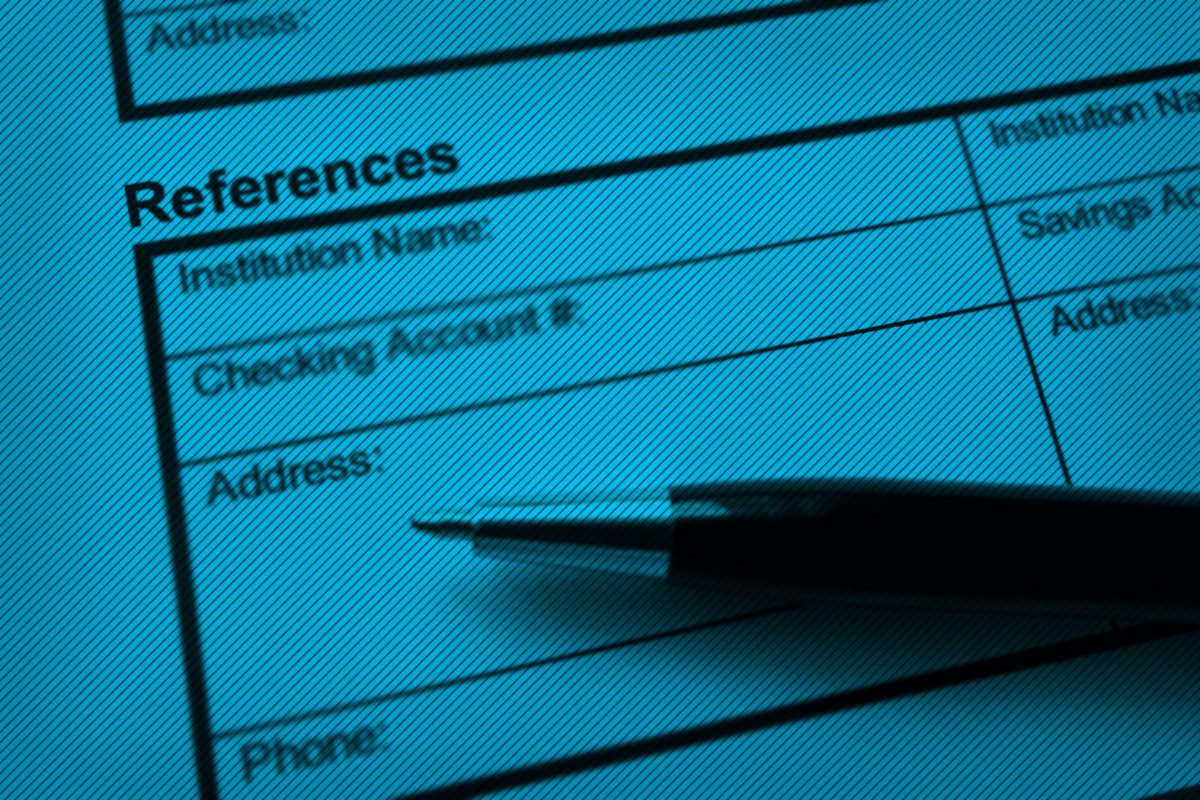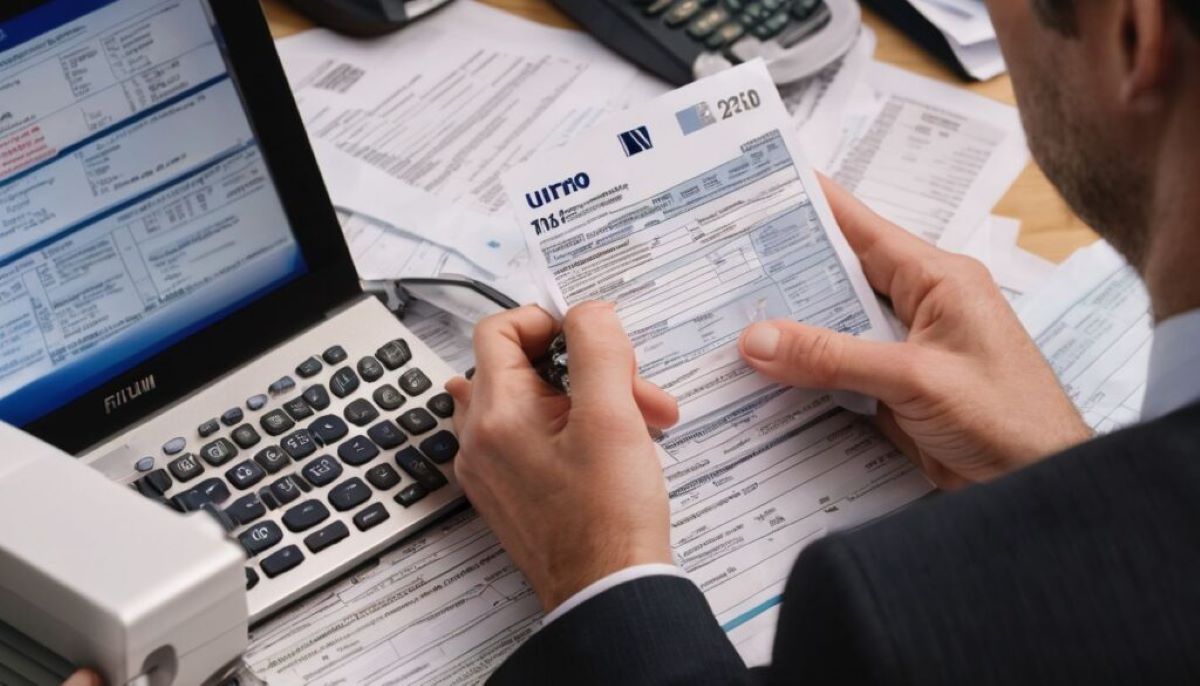

Finance
What Are Credit References
Published: January 12, 2024
Learn about credit references and how they play a crucial role in finance. Understand how to establish and manage credit references for financial success.
(Many of the links in this article redirect to a specific reviewed product. Your purchase of these products through affiliate links helps to generate commission for LiveWell, at no extra cost. Learn more)
Table of Contents
Introduction
Welcome to the world of Credit References – an essential aspect of personal and business finance. Whether you’re applying for a loan, leasing an apartment, or starting a new business venture, credit references play a significant role in determining your creditworthiness and financial reputation.
In simple terms, credit references are a form of endorsement that lenders, landlords, and business partners rely on to evaluate an individual’s or company’s creditworthiness. They provide insight into an individual’s or entity’s financial habits, payment history, and overall responsibility with managing credit.
Having positive credit references can open doors to favorable terms and opportunities, while negative or insufficient references can hinder financial prospects. Therefore, understanding the importance of credit references and how to manage and establish them is vital for anyone seeking financial stability and growth.
In this article, we will delve into the definition of credit references, why they are important, the types of credit references available, and how to obtain and provide them effectively. We will also discuss the role credit references play in assessing creditworthiness and their significance in the business world.
Whether you’re a seasoned individual with an established credit history or just starting your financial journey, understanding credit references will equip you with valuable knowledge to navigate the complex landscape of lending, renting, and conducting business.
Definition of Credit References
Credit references refer to the individuals or entities that can vouch for your creditworthiness and financial responsibility. They serve as testimonials regarding your ability to manage debt, make timely payments, and fulfill financial obligations.
These references can come from various sources, including lenders, landlords, utility companies, and even business partners. The information provided by these references offers insights into your financial history, including how you have handled credit in the past and whether you are likely to make future payments on time.
Credit references typically include relevant details such as your account history, payment patterns, credit limits, outstanding balances, and any negative incidents such as late payments or defaults. Lenders and other entities use this information to assess your creditworthiness and determine the level of risk associated with granting you credit or entering into a financial arrangement.
It is important to note that credit references are not the same as credit reports. While credit reports provide a comprehensive view of your credit history, credit references are specific endorsements from individuals or entities who have had a direct financial relationship with you.
When applying for credit, you will often be asked to provide references who can attest to your financial reliability. These references should be individuals or organizations that have firsthand knowledge of your financial habits and can provide a fair assessment of your creditworthiness. Common examples of credit references include previous lenders, landlords, employers, and business associates.
Understanding the definition and importance of credit references is essential as they can greatly impact your financial opportunities. By maintaining positive relationships with creditors and other entities and ensuring that you have reliable credit references, you can enhance your credibility and increase your chances of securing favorable credit terms and financial opportunities.
Why Credit References Are Important
Credit references hold significant importance in the world of finance for several reasons. They provide a glimpse into an individual’s or company’s financial track record, allowing lenders, landlords, and business partners to assess creditworthiness and make informed decisions. Here are some key reasons why credit references are important:
- Evaluating Creditworthiness: Credit references are used by lenders to evaluate an individual or business’s creditworthiness. By examining credit references, lenders can gauge the likelihood of repaying loans or credit on time. Positive credit references demonstrate a track record of responsible financial behavior, while negative references may raise concerns about an individual’s ability to manage credit.
- Verifying Financial Responsibility: Credit references validate an individual’s or company’s financial responsibility. They provide evidence that an entity has successfully managed credit in the past, indicating the likelihood of responsible financial behavior in the future. A strong credit reference can give lenders, landlords, and business partners the confidence to proceed with credit agreements or partnerships.
- Accessing Financing: Good credit references increase the chances of accessing financing at favorable terms. Lenders rely on credit references to determine the interest rates, loan amounts, and repayment terms they are willing to offer to borrowers. Positive credit references can qualify individuals for lower interest rates and higher loan amounts, making it easier to achieve financial goals.
- Securing Rental Agreements: Landlords often require credit references to assess the financial stability of potential tenants. By reviewing credit references, landlords can determine whether a tenant has a history of making timely rental payments and fulfilling their obligations. Positive credit references can help secure a desirable rental agreement and provide a competitive edge in a competitive housing market.
- Building Trust: Credit references play a crucial role in establishing trust between parties. Lenders and business partners need assurances that individuals and companies they engage with are reliable and trustworthy. Positive credit references enhance a person’s or company’s reputation and inspire confidence in financial transactions, leading to better opportunities for credit and partnerships.
Overall, credit references are integral to financial decision-making processes. They provide a foundation on which lenders, landlords, and business partners can assess risk, negotiate terms, and make informed judgments. Careful management of credit references is essential for improving creditworthiness, accessing favorable financial terms, and establishing a solid financial reputation.
Types of Credit References
Credit references can come in various forms, each offering different perspectives on an individual’s or company’s creditworthiness. Here are the most common types of credit references:
- Trade References: Trade references are recommendations provided by suppliers or vendors with whom a business has had a credit relationship. These references typically include details about the credit terms granted, payment history, and overall satisfaction with the business’s financial conduct. Trade references are particularly significant for small businesses seeking to establish creditworthiness.
- Personal References: Personal references are individuals who can vouch for an individual’s financial responsibility. These references may include friends, family members, or professionals who have insight into the person’s financial behavior. Personal references are often required when applying for personal loans or when an individual lacks an established credit history.
- Professional References: Professional references are individuals who can provide insight into an individual’s financial habits and responsibility, typically in a professional context. These references are commonly sought by prospective employers or landlords and may include supervisors, colleagues, or mentors who can speak to an individual’s financial reliability.
- Bank References: Bank references are endorsements provided by a bank or financial institution with whom an individual or business has a banking relationship. These references may include information about account balances, loan repayment history, and overall financial stability. Bank references carry significant weight in evaluating creditworthiness due to the credibility of the issuing institution.
- Supplier References: Supplier references are similar to trade references but focus specifically on the creditworthiness of a company or business entity. These references are typically provided by suppliers with whom the company has had a credit relationship. They may include details about payment history and the promptness of meeting financial obligations.
Each type of credit reference offers a unique perspective on an individual’s or company’s financial responsibility. Lenders, landlords, and business partners may request specific types of credit references based on their specific requirements and the nature of the financial relationship being considered.
It is important to note that credit references should come from reliable and credible sources. References from individuals or businesses with a strong financial reputation carry more weight and can positively impact creditworthiness assessments. Ensuring that the provided credit references accurately reflect one’s financial behavior can significantly enhance the chances of securing favorable credit terms and financial opportunities.
How to Obtain Credit References
Obtaining credit references is crucial for establishing and maintaining a positive credit history. Here are some steps to help you obtain credit references:
- Build Relationships: Start by building strong relationships with individuals and businesses who can potentially provide credit references. This includes prompt and responsible payment management with creditors, maintaining good communication, and fulfilling financial obligations in a timely manner.
- Request References: Approach individuals or businesses you have a good relationship with and ask if they would be willing to provide a credit reference for you. Make sure to choose individuals who can confidently speak about your financial responsibility and reliability. Explain the purpose and significance of credit references and how they can benefit your financial goals.
- Maintain Documentation: Keep a record of any positive financial interactions, such as written confirmations of prompt payments or letters of recommendation from satisfied business partners. These documents can serve as supporting evidence when requesting credit references.
- Stay in Good Standing: Continuously strive to maintain a positive credit history by making payments on time, avoiding excessive debt, and demonstrating responsible financial behavior. This will ensure that your credit references accurately reflect your creditworthiness and increase the likelihood of obtaining favorable references.
- Establish Trade Credit: If you own a business, establish trade credit with suppliers or vendors who offer credit terms. Consistently make timely payments and maintain a positive credit relationship to leverage these suppliers as credit references in the future.
- Utilize Online Platforms: There are online platforms, such as LinkedIn, where professionals can endorse your financial responsibility and provide credit references. Engage in professional networking, actively seek endorsements, and build a strong online presence to enhance your ability to obtain credit references.
- Consider Credit Reporting Agencies: Credit reporting agencies, such as Dun & Bradstreet or Experian, collect and provide information on the creditworthiness of businesses. Establishing a positive credit history with such agencies can be beneficial in securing credit references for your business.
Remember, it is essential to request credit references from individuals or businesses who have firsthand knowledge of your financial reputation and can provide an accurate evaluation. Regularly review and update your credit references as your financial circumstances evolve, ensuring that they reflect your current creditworthiness.
By proactively seeking and maintaining positive credit references, you can enhance your financial credibility, increase your chances of securing favorable credit terms, and create opportunities for future financial growth and success.
How Credit References are Used
Credit references play a significant role in the decision-making process of lenders, landlords, and business partners. Here are several ways in which credit references are used:
- Evaluating Creditworthiness: Credit references are a crucial tool for assessing an individual’s or company’s creditworthiness. Lenders review credit references to determine the level of risk involved in extending credit. They analyze payment history, outstanding balances, and any negative incidents, such as late payments or defaults, to gauge the likelihood of timely repayment.
- Making Conditional Offers: Landlords often use credit references to determine the eligibility of prospective tenants. A positive credit reference can help secure a rental agreement, while a negative reference may lead to the rejection of the application. Landlords rely on credit references to assess the financial responsibility of tenants and mitigate the risk associated with late rent payments or property damage.
- Setting Credit Terms: Credit references play a crucial role in determining the terms and conditions of credit agreements. Lenders examine credit references to assess the interest rates, loan amounts, and repayment periods they are willing to offer to borrowers. Positive credit references can lead to more favorable terms and lower borrowing costs, while negative references can result in higher interest rates or lower loan amounts.
- Verifying Financial Stability: Credit references help in verifying an individual’s or company’s financial stability. By reviewing credit references, business partners can assess the financial health and reliability of potential collaborators. Positive credit references indicate a consistent track record of meeting financial obligations, inspiring confidence in the ability to fulfill contractual terms.
- Making Business Decisions: Companies may use credit references when making business decisions, such as choosing suppliers or extending credit to customers. Referencing the financial track record of suppliers ensures they have a history of fulfilling their obligations, while reviewing the credit references of customers helps assess the likelihood of timely payments.
- Determining Insurance Premiums: Credit references can also impact insurance premiums. Insurance companies may consider credit references when assessing the risk profile of a policyholder. A positive credit reference can lead to lower insurance premiums, as it indicates a lower risk of default or delayed payments.
Credit references provide valuable insights into an individual’s or company’s financial behavior and responsibility. By analyzing these references, lenders, landlords, and business partners can effectively assess risk, make informed decisions, and establish mutually beneficial financial relationships.
Understanding how credit references are used empowers individuals and businesses to proactively manage their credit history and ensure they have positive and reliable references that accurately represent their financial capabilities.
How to Provide Good Credit References
Providing good credit references is essential for establishing a positive credit reputation and increasing your chances of securing favorable financial opportunities. Here are some guidelines on how to provide good credit references:
- Maintain Good Financial Habits: Consistently practice responsible financial habits such as making payments on time, keeping credit utilization low, and managing debt effectively. Demonstrating good financial behavior will positively reflect in your credit references.
- Communicate with Creditors: Foster open communication with your creditors. Notify them proactively if you anticipate any challenges in making timely payments. By demonstrating accountability and proactive communication, you can minimize the impact of any negative circumstances on your credit references.
- Consistently Fulfill Obligations: Ensure you meet all financial obligations in a timely manner. This includes paying rent, utility bills, loan payments, and any other credit agreements promptly. Reliable and consistent payment behavior enhances your creditworthiness and strengthens your credit references.
- Build Positive Relationships: Forge strong relationships with individuals and businesses who can provide credit references. Cultivate professional connections with suppliers, landlords, and lenders who can vouch for your financial responsibility. Maintain open lines of communication and provide excellent customer/client service to ensure positive references when needed.
- Keep Records and Documentation: Maintain accurate records and documentation of positive financial interactions. Keep track of receipts, invoices, and written confirmations of timely payments. These records can serve as proof of your reliability when providing credit references.
- Stay Informed: Regularly check your credit reports to ensure accuracy and address any potential issues immediately. By staying informed about your credit history, you can proactively manage your credit references and take corrective actions, if needed.
- Request References from Various Sources: Seek credit references from diverse sources to provide a comprehensive view of your creditworthiness. Consider requesting references from financial institutions, suppliers, landlords, and business partners who can provide different perspectives on your financial responsibility.
- Follow Up and Express Gratitude: After obtaining credit references, follow up with your references to express gratitude for their support. Maintain positive relationships with your references to ensure their continued willingness to provide endorsements when required.
Remember, providing good credit references requires consistent financial responsibility and proactive communication. By implementing these practices, you can build a strong credit reputation, establish reliable credit references, and increase your chances of obtaining favorable credit terms and financial opportunities.
How Credit References Affect Creditworthiness
Credit references play a crucial role in determining an individual’s or company’s creditworthiness. They provide valuable insights into an entity’s financial history and behavior, impacting how lenders, landlords, and business partners assess credit risk. Here are some ways in which credit references affect creditworthiness:
- Payment History: Credit references reveal an individual’s or company’s payment history, including whether payments were made on time or if there were any delinquencies. Positive credit references indicate a strong track record of timely payments, which signals financial responsibility and enhances creditworthiness. Conversely, negative credit references, such as late payments or defaults, can raise concerns about an entity’s ability to manage credit obligations.
- Debt Management: Credit references provide information on an entity’s debt management practices, including credit utilization and outstanding balances. Low credit utilization and responsible debt management demonstrate good financial discipline, positively impacting creditworthiness. High credit utilization or excessive debt may raise concerns about an entity’s ability to handle additional credit and can negatively affect credit references.
- Stability and Reliability: Credit references reflect an entity’s stability and reliability in meeting financial obligations. Consistently fulfilling payment obligations and maintaining positive relationships with creditors and business partners showcase financial stability. These references contribute to a positive creditworthiness assessment and enhance the chances of securing favorable credit terms.
- Credibility: Credit references establish credibility and trustworthiness in the eyes of lenders, landlords, and business partners. Positive references indicate a proven ability to honor financial commitments and inspire confidence in future credit obligations. An entity with credible credit references is more likely to be considered creditworthy and attract better financial opportunities.
- Access to Credit: Strong credit references increase an entity’s access to credit. Lenders and financial institutions rely on credit references to determine the level of risk associated with extending credit. Positive credit references improve the chances of obtaining credit at favorable terms, including lower interest rates, higher credit limits, and longer repayment periods.
- Competitive Advantage: Having good credit references provides a competitive advantage in various financial transactions. Landlords may prioritize applicants with positive credit references, leading to better rental agreements. Business partners may choose to engage with entities that have strong credit references, fostering additional opportunities for growth and success.
It is important to note that credit references are just one factor in assessing creditworthiness. Lenders and other entities may also consider credit scores, employment history, income levels, and other financial indicators. However, credit references play a significant role in shaping perceptions of creditworthiness and can have a substantial impact on financial decisions.
By maintaining positive credit references through responsible financial management and fulfilling obligations in a timely manner, individuals and businesses can enhance their creditworthiness, improve financial prospects, and open doors to favorable credit opportunities.
The Role of Credit References in Business
Credit references play a crucial role in the world of business, serving as a key factor in assessing the financial stability, reliability, and creditworthiness of companies. Here are some ways credit references impact businesses:
- Vendor and Supplier Relationships: Credit references are instrumental in establishing vendor and supplier relationships. When businesses seek to establish credit terms with suppliers, a positive credit reference can instill confidence in the supplier regarding the company’s ability to make timely payments. Good credit references can lead to favorable terms, such as longer payment terms or discounts, enhancing cash flow and allowing businesses to maintain healthy relationships with suppliers.
- Access to Financing: Businesses often need financing to fund operations, expand, or invest in growth opportunities. Credit references play a significant role in securing business loans or lines of credit from financial institutions. Positive credit references can increase the chances of obtaining financing at favorable interest rates and terms, providing the capital necessary for business growth and development.
- Building Trust with Clients: Positive credit references are essential for building trust with clients. When businesses have a strong credit reputation and references, it demonstrates financial stability and reliability. This instills confidence in clients, leading to increased trust, stronger business relationships, and potential repeat business.
- Negotiating Contracts: Credit references are essential when negotiating contracts with both clients and suppliers. Positive credit references can influence contract terms, such as payment schedules, credit limits, and pricing. Strong credit references can give businesses a competitive advantage in negotiations, as they demonstrate a history of fulfilling financial obligations and signify a low credit risk to potential partners.
- Influencing Insurance Premiums: Credit references can impact insurance premiums for businesses. Insurance companies may use credit references as a factor in determining the risk profile of a business, which can influence the cost of insurance coverage. Positive credit references may result in lower premiums, as they signify responsible financial behavior and reduce the perceived risk for insurers.
- Expanding Business Opportunities: A solid credit reputation with positive credit references opens doors to new business opportunities. Businesses with good credit references may be more likely to secure partnerships, joint ventures, and collaborations. Potential business partners feel more comfortable engaging with companies that have a proven track record of financial responsibility, expanding the range of opportunities available.
Businesses must strive to maintain positive credit references by practicing good financial management, making timely payments, and fulfilling financial obligations. By doing so, they can enhance their creditworthiness, build strong relationships with vendors and clients, and gain access to favorable financing terms. Managing credit references effectively is crucial for businesses seeking long-term success in a competitive marketplace.
Conclusion
Understanding the importance of credit references is essential for individuals and businesses alike. Credit references provide a glimpse into one’s financial history and behavior, serving as a crucial factor in assessing creditworthiness and making important financial decisions. Whether it’s applying for a loan, securing a rental agreement, or forming business partnerships, credit references play a significant role in shaping opportunities and outcomes.
Throughout this article, we have explored the definition of credit references, their types, and how to obtain and provide them effectively. We have also discussed how credit references influence creditworthiness and examined their role in the business landscape.
It is clear that maintaining positive credit references is vital for success in personal and business finance. By practicing responsible financial habits, building strong relationships with creditors and business partners, and fulfilling financial obligations on time, individuals and businesses can establish a solid credit reputation and increase their chances of securing favorable credit terms and financial opportunities.
Remember, credit references are not static and can change over time. Regularly reviewing and updating credit references to accurately reflect one’s financial behavior is crucial for maintaining a positive credit reputation.
In conclusion, credit references offer valuable insights into an individual’s or company’s creditworthiness and financial responsibility. By managing credit references effectively and demonstrating a track record of reliable financial behavior, individuals and businesses can unlock doors to better financial opportunities and achieve long-term financial success.














